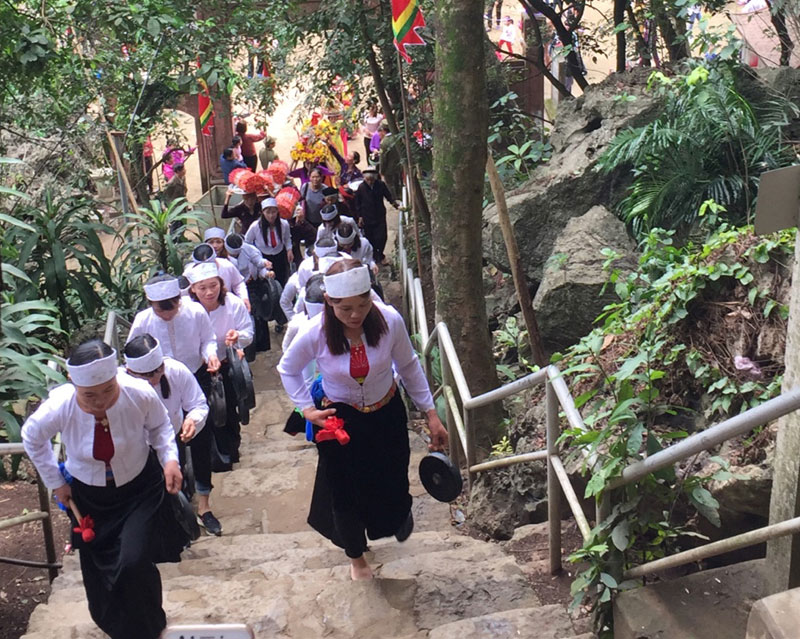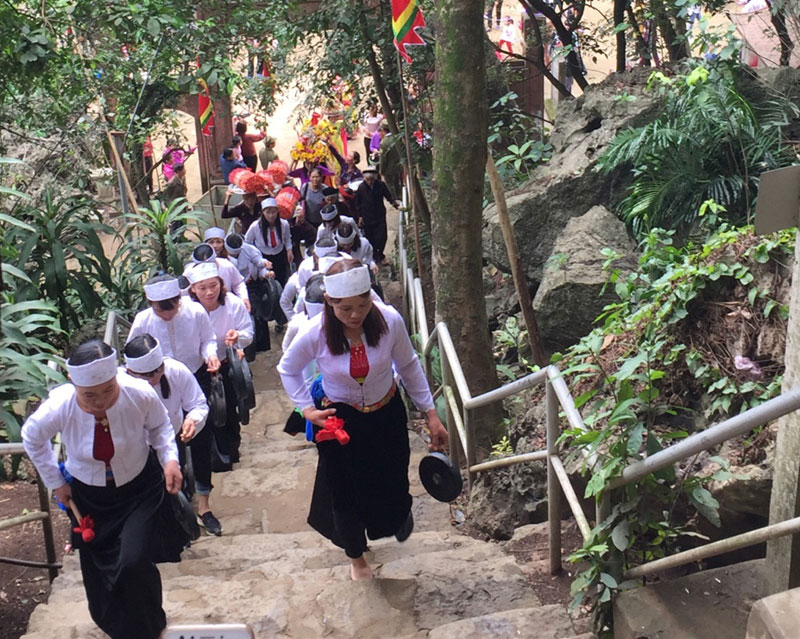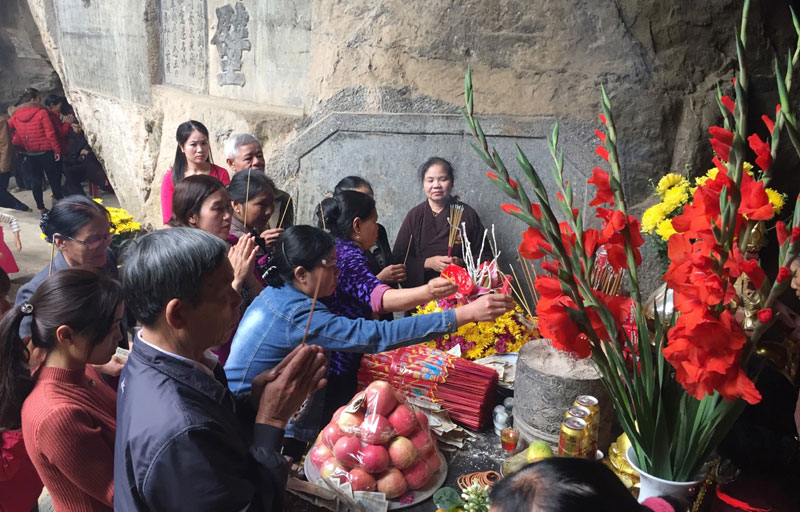
(HBO) – The People’s Committee of Yen Tri Commune has organized a traditional festival of Hang Pagoda – Chua Cave at Hang Pagoda in Yen Tri Commune, Yen Thuy District.

The gongs system leading the procession up to
Hang Pagoda
On Lunar January 14th, there were
exchange activities of sports and art performances "Happy Party – Happy
Spring”. On Lunar January 15, the festival were held with the activities of:
procession, lion dance, shuttlecock throwing , the final match of volleyball
competition, etc.
In 1994, Hang Pagoda – Chua Cave was
recognized by the Ministry of Culture as a national historical-cultural relic.
Since then, on the first days of the Lunar New Year, Yen Tri commune jubilantly
opened the Hang Pagoda Festival. It is an annual traditional festival held on
the occasion of the full moon of Mid - Lunar January with the purpose of
praying for the security of nation and people, for good weather and good
harvest. It is a beautiful combination of Buddhist culture and traditional
culture. Coming to the festival, the people and visitors could see the unique
pagoda scene in the cave; then they could light the incense to respectfully
pray the Buddha for fortune, talent; and then participating in cultural
exchanges and folk games.
This year, the festival was held at the
commune level. The highlight of this year's festival is the volleyball
competition exchange which took place very actively with the participation of
volleyball teams of Lac Son district and Nho Quan district (Ninh Binh
province).

Local people and visitors from everywhere
dedicating the offer, lighting the incense to pray for fortune, talent and
peace for a new year.
With an increasingly vibrant and widespread emulation movement aimed at building cultured residential areas and cultured families, Yen Thuy District has been making steady progress toward improving both the material and spiritual well-being of its people, while fostering a civilized, prosperous, beautiful, and progressive community.
Once lacking recreational spaces and community facilities, Residential Group 2 in Quynh Lam Ward (Hoa Binh City) has recently received attention for the construction of a new, spacious, and fully equipped cultural house. The project followed the model of state support combined with public contributions in both labor and funding.
The "All people unite to build cultural life" movement, which has been effectively integrated with Kim Boi district’s socio-economic development goals, is fostering a lively spirit of emulation across local residential areas, hamlets, villages, public agencies, and enterprises. In addition, through the initiative, traditional cultural values are being preserved and promoted, while community solidarity and mutual support in poverty reduction and economic development are being strengthened.
A working delegation of the Hoa Binh provincial People’s Committee led by its Permanent Vice Chairman Nguyen Van Toan on June 11 inspected the progress of a project to build the Mo Muong Cultural Heritage Conservation Space linked to tourism services in Hop Phong commune, Cao Phong district.
Born and growing in the heroic land of Muong Dong, Dinh Thi Kieu Dung, a resident in Bo town of Kim Boi district, in her childhood was nurtured by the sweet lullabies of her grandmother and mother. These melodies deeply imprinted on her soul, becoming an inseparable part of her love for her ethnic group's culture. For over 20 years, this love for her hometown has driven Dung to research, collect, and pass down the cultural values of the Muong people to future generations.
In the final days of May, the Ethnic Art Troupe of Hoa Binh Province organized performances to serve the people in remote, mountainous, and particularly disadvantaged areas within the province. These were not just ordinary artistic shows, but they were the meaningful journeys aimed at spreading cultural values, enhancing the spiritual life of the people and contributing to the preservation of ethnic minority cultural identities.




